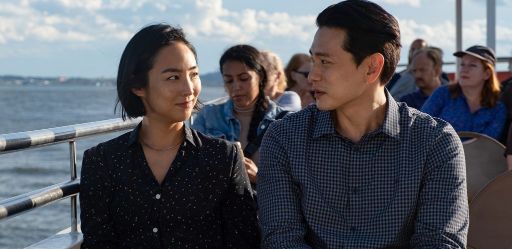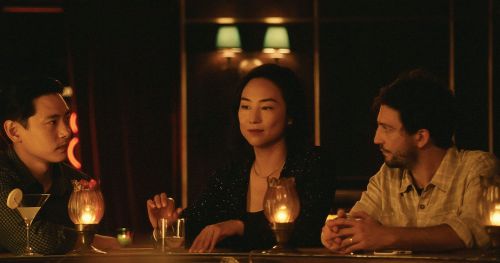The plot of A24’s “Past Lives” centres on Nora and Hae Sung, who meet up again after a long separation. Childhood sweethearts who had spent their entire lives together in Seoul were torn apart when Nora emigrated to Canada with her family. They re-connect on social media twelve years later, yet they also drift apart. Twelve years later, they cross paths once more, but this time in person. They become aware of how different their lives are as they converse about love and living.
The movie, which is a romance drama and was directed by Celine Song, is considerably more subtle than others in the category, especially those that emphasise the reunion of former lovers. Themes like first love, immigration, fate, and choices are examples of themes that are realistically depicted in Song’s film. The audience can relate to the movie as a result, even if they don’t really identify with the protagonist. You could question if Song has a personal connection to the movie given how private and authentic it feels. Let’s investigate.
Is Past Lives Based on Celine Song’s Life?
Song was inspired to write “Past Lives” after having a real-life incident that is depicted in the film. When she began writing the movie, she included a few things that had nothing to do with her life and approached it from an objective perspective. “I wasn’t attempting to copy or duplicate anything. I refer to it as an adaptation, as if I were using my own source material for it. It’s an experience that “objectifies a subjective feeling,” she explained, elaborating on how distinct the boundaries between fact and fiction are.
‘Past Lives’ bases Nora’s character in large part on Song. Song, like her main character, was born in South Korea and moved to Canada when she was 12 years old. Like Nora, Song established a playwriting career and resided in New York, where she met her future husband, who also happens to be white like Arthur in the film. When he visited New York, Song reconnected with her South Korean childhood sweetheart. When Song and her husband first met the man, she immediately saw herself as a mediator.
Her buddy couldn’t speak English, and her spouse couldn’t speak Korean. As a result, Song served as their interpreter and go-between. “I distinctly recall feeling something extraordinary passing through us as we sat there. These two guys and I can truly converse and have a special relationship because neither of them can do anything for me that the other can. My childhood pal just has a superficial familiarity with me as an adult. My husband is familiar with me as an adult, but he is unaware of the child-me.
She also saw that other diners were staring at them and questioned if they were contemplating the relationships between the three of them. We hear two unrelated persons discussing Nora, Arthur, and Hae Sung in the opening scene of the movie and speculating about who is related to whom. Oh, you have no idea, so let me tell you…, that was the initial thought, Song said.
Although the story began with this ostensibly little event in her life, it quickly grew and evolved into a consideration of options. She pondered what it meant to choose one thing while rejecting another through her relationship with Hae Sung and Nora. She also discussed the relationship that a person has with the country of their birth and how time and distance might impact it.
Song initially wrote the script in Korean, with an English translation of each dialogue, as the choice of language is a crucial component of the storyline. She maintained a space between her performers to make the action seem more authentic. The actors who play Hae Sung and Arthur, Teo Yoo and John Magaro, were kept apart until they shot the scene in which their characters first interact. Similar to how Yoo and Greta Lee (Nora) weren’t allowed to touch in real life until their characters did so in the movie, Song. Despite having a familiarity that came from knowing one another, they never even exchanged handshakes or hugs to make the scenario in the movie more “tangible.”
The foundation of the story for Song was the link to the 12-year-old version she left behind when she emigrated to Canada, despite all the turmoil of the unrequited love and pining the characters have for one another. Her subjective experience was shown through an objective lens in the film. When it comes to being an immigrant, having left a location, and moving on from the version of myself that was present before, I wanted to “[display] what it was like to live as myself. I felt a connection to how my childhood friend recalled me when I was 12 years old. The contrast captivated my attention. Although the tiny girl is no longer with us, she will always be a part of you, according to Song. ‘Past Lives’ is a semi-autobiographical narrative that, despite leaning more towards fiction, taps on some quite genuine feelings.



